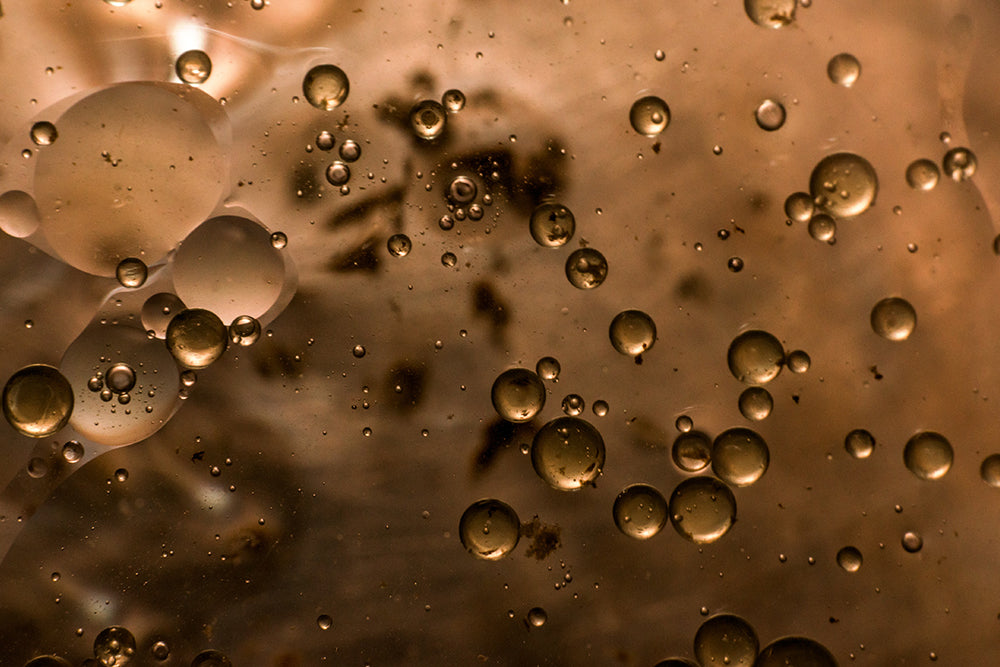Your Cart is Empty
November 09, 2021 3 min read

Many people grow up with the notion that filtered water is superior to tap water, but oftentimes the convenience and seemingly unending nature of tap water motivates families to drink tap. Recent studies show that tap water is not harmless, as unfiltered water actually carries harmful toxins known as PFAS.
First and foremost, per-and polyfluoroalkyl substances (more commonly referred to as PFAS), are nearly indestructible chemical compounds. Sometimes called “forever chemicals,” once released, they seep into water and soil sources and bring their toxins with them. PFAS continue to be ignored by public health agencies because not much is known about them, even though they are linked to harmful health risks like ulcerative colitis and kidney cancer. The responsibility of ensuring PFAS are not consumed in drinking water falls to the individuals, so it is crucial to know how to get PFAS out of tap water. Seychelle water filters make this easy.
While PFAS are just now receiving public attention, the threat they pose is not new to the American government. In fact, according to the Environmental Working Group, for decades health agencies “have known about the health hazards of PFAS… but have failed to limit PFAS discharges into the air and water.” Because PFAS are hard to track once they leave a controlled site, like a factory, agencies fail to address concerns supporting the chemicals. Currently, PFAS are used to create the “nonstick” function of pots and pans, to waterproof clothing and shoes, and to create the smooth film on fast food wrappers. These production companies are responsible for PFAS leaking into the earth from run-off, and now PFAS can be detected in tap water across the United States. In a study conducted by Consumer Reports, 120 houses’ tap water was tested around the country. 117 came back with high levels of PFAS.
It may seem like PFAS are unavoidable; they are in tap water, and they have been for decades. However, budding research demonstrates that PFAS can be linked to a wide variety of health concerns, including high cholesterol, ulcerative colitis, pregnancy-induced hypertension, thyroid disease, testicular cancer, kidney cancer, and a decreased response to vaccines. Additionally, animals tested with high levels of PFAS have had birth defects and increased liver sizes.
Thankfully, there is a solution to the PFAS problem. Water filtration, when implemented properly, can filter out harmful toxins--including PFAS. While the Environmental Protection Agency has yet to regulate PFAS emissions in tap water, households can do their part to keep themselves and their families safe. Seychelle water filters are independently lab tested to ensure PFAS stay out of tap water. Investing in Seychelle water filtration is an investment for safety, wellness, and familial security.
What are PFAS?
PFAS, or per-and polyfluoroalkyl substances, are harmful chemicals known as “forever chemicals.” They are tightly bound together in a manner that allows them to survive for thousands of years.
Where can PFAS be found?
PFAS are most commonly found in consumer products involving “nonstick” qualities. Nonstick pots and pans, waterproof shoes and clothing, and oil-resistant packaging from fast food companies all contain PFAS. More alarming, however, is that PFAS are found in tap water.
Why haven’t I heard of PFAS?
Research on the harmful effects of PFAS, including cancer and birth defects, is still being conducted. Because PFAS are used in consumer products, public health agencies are slow to regulate them until more research is solidified. This allows companies to produce and dump PFAS without consequence. PFAS remain understudied despite their connections to health risks.
How can I protect myself and my family from PFAS?
Seychelle water filters are specifically designed to filter out harmful toxins, including PFAS. Filtering tap water through a Seychelle product allows for peace of mind when it comes to clean, PFAS-free water.
Felton, Ryan. “How Safe is Our Drinking Water?”Consumer Reports, 31 March 2021, https://www.consumerreports.org/water-quality/how-safe-is-our-drinking-water-a0101771201/. Accessed 27 October 2021.
“Mapping the PFAS Contamination Crisis: New Data Shows 2,854 Sites in 50 States and Two Territories.”EWG, 4 October 2021,https://www.ewg.org/interactive-maps/pfas_contamination/. Accessed 27 October 2021.
Oliver, John. “PFAS: Last Week Tonight with John Oliver.”HBO, 3 October 2021,https://www.ewg.org/interactive-maps/pfas_contamination/.
“Per-and Polyfluoroalkyl Substances (PFAS) and Your Health.”ATSDR, 22 April 2021,https://www.atsdr.cdc.gov/pfas/health-effects/exposure.html. Accessed 28 October 2021.